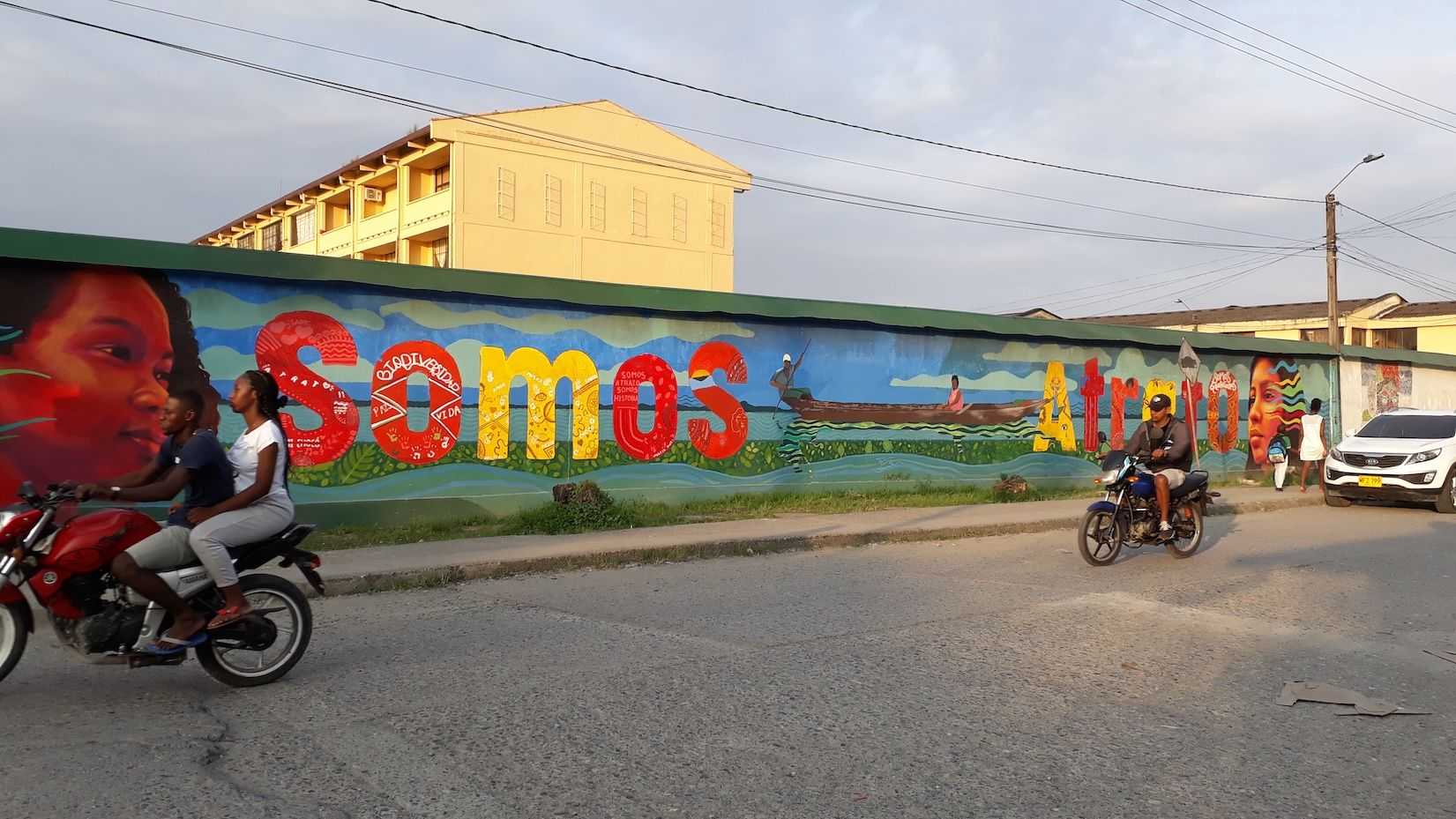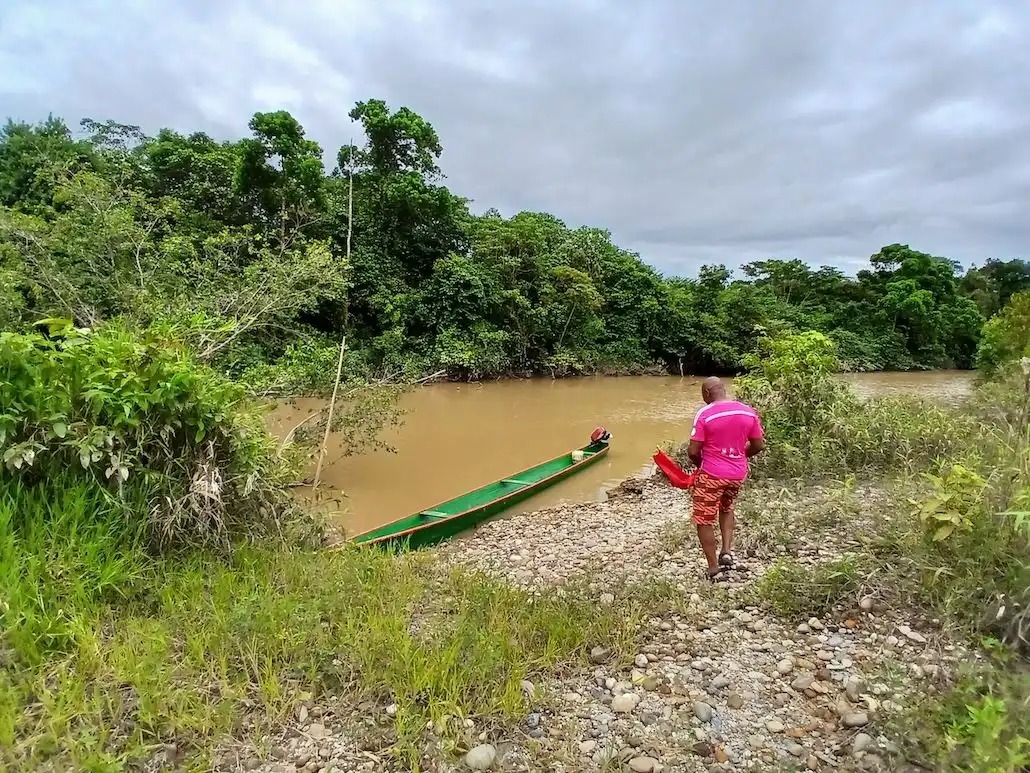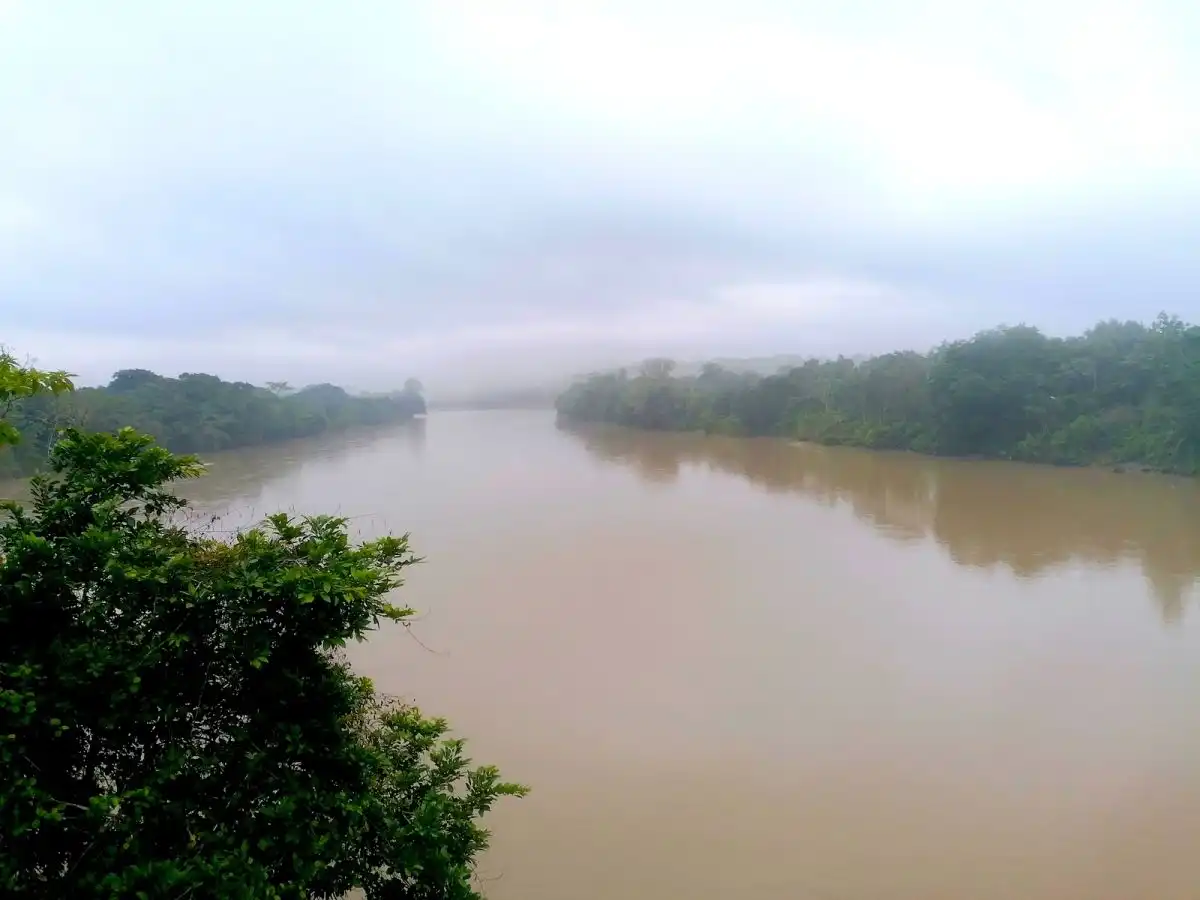Home>A European tour to raise awareness on the rights of nature: The guardians of the Atrato River in Colombia

10.06.2025
A European tour to raise awareness on the rights of nature: The guardians of the Atrato River in Colombia
Interview with Sandrine Revet and Rodrigo Rogelis
In Colombia, the Atrato River was the first to be granted rights by the Constitutional Court in 2016. The Court appointed a commission of River Guardians to ensure compliance with this decision. Since then, fourteen community guardians have been working with the Colombian Ministry of the Environment — also appointed as a guardian on behalf of the state — to advance the rights of the Atrato. Two of these guardians, along with two lawyers from the Centro Siembra association, which supports them in their fight for the river's rights, have visited Paris. The meeting that took place at Sciences Po offered a rare chance to hear first-hand accounts from individuals dedicated to implementing the rights of nature in their daily lives. Read our interview with Sandrine Revet, anthropologist at CERI and Rodrigo Rogelis, on behalf of the Guardians and Centro Siembra.
Can you tell us about your group and the cause you are fighting for?
Rodrigo Rogelis: Our group comprises two guardians of the Atrato River and two members of the Socio Legal Centre Siembra, who advise the River Guardians. We are fighting for the realisation of the rights of the river and its communities, which are closely linked, as these communities have developed their entire way of life in relation to the river. Food, the economy, culture, family relations, festivities, identity and leisure are all dependent on the river. However, armed conflict combined with highly destructive extractive industries, particularly gold mining, has destroyed various sections of the river and its tributaries. This has led to a massive humanitarian crisis, including food scarcity, poor living conditions, a dysfunctional economy, poverty, violence and the near-complete destruction of their way of life. That's why community organisations demanded a response from the state and filed a lawsuit against the Colombian government for allowing the situation to deteriorate. In response, the court recognised the rights of the river as a means of guaranteeing the collective rights of the community. Equally importantly, the court delegated equal responsibility to the communities and the state to represent the river and be its voice. These are the guardians of the Atrato. This represents a highly innovative governance system with no precedent in a country with such a history of exclusion and overly centralised public policy. Now, the communities are recognised as interlocutors. However, this also entails significant responsibility, as we must encourage the entire government, with all its complexities and contradictions, to commit to substantial public policy initiatives (such as restoring the river, reviving ancestral production systems, and halting illegal mining). This is what we are fighting for. We are pushing for the ruling to be implemented adequately as a new approach to public policy, to guarantee that the rights of the river and its communities are respected and upheld.
You have been in several countries, and met with various categories of people. What conclusions can you draw from this tour?
Rodrigo Rogelis: We have met with politicians, NGOs, members of civil society and academics from the UK, Ireland and France to build relationships and garner support for the implementation of ruling T-622. So it’s a multifaceted tour.

We were surprised by the enormous amount of interest in the discussion about the rights of nature, not only from an academic point of view, but also as a potential framework for use by civil society and grassroots organisations here in Europe. There is a lively discussion about the relevance of its use in contexts such as France, Northern Ireland and Scotland, and a strong interest in the Atrato experience and the governance system we have established. However, the context, problems and history of law are very different indeed, so the rights of nature process is going to look very different here, with different obstacles and problems to overcome. It’ll be exciting to be part of that process too. We believe that the Atrato case has much to offer in this regard. Materialising rights of nature in Colombia, a country with such deficiencies, has taught us important lessons that can help those working on it here. At the same time, the unique approaches developed here will offer new implementation pathways that will be useful for us in our own process. We envisage various ways of collaborating and establishing a rights of nature network that will play a significant role in the future.
What role does research play in this cause?
Sandrine Revet: Initially, scientific research supported the case of the local communities, and subsequently the decision of the Constitutional Court, which called on experts from various disciplines to inform its decision on certain points. Once the decision was handed down, the Court also requested scientific studies, particularly to provide information on contamination, populations and the river. Since then, however, other research, particularly in the social sciences, has also been conducted, and several PhD theses have been completed, both in Colombia and elsewhere. These often examine the impact of the ruling based on interviews or observations of the guardians at different times. We have tried to share the results of this work with each other and with stakeholders through a small informal network called the Red Atrato, which was set up during the pandemic. An event was organised in Quibdó, Chocó, in June 2024. Sharing this research with those working in the field enables them to take a step back from their work and reflect on their practices, while also allowing researchers to gather feedback on their analyses. My own research is part of this approach. Having accompanied this long process for seven years, returning once or twice a year for periods of several weeks, I have built a trusting relationship with those involved and shared the findings of my research with them.
What challenges remain ahead?
Sandrine Revet: There are still many challenges to overcome, and the process that has been initiated is likely to take a long time. Different actors within the Colombian state must be mobilised for each 'moment'. Currently, the Court's orders on mining and transparency in the gold value chain, as well as health issues affecting both the river and the local population, dominate the agenda. The main challenge for research is to maintain the investigation over the long term, beyond the initial media interest generated by the court ruling. Over time, it will also be necessary to address a wide range of issues related to the T-622 ruling and raised by it, such as the role of religion in this struggle, gender issues, and the articulation of local and expert knowledge.
Rodrigo Rogelis: We have completed the first stage of the process. We have established a governance structure to ensure equal decision-making and developed consensual plans. This was not an easy process, and maintaining it will require the same level of effort. We are now beginning a second stage, the implementation of the plans, which brings up new and even more difficult challenges.

Firstly, there is the issue of financing to consider, which involves ensuring that the ruling and its implementation remain on the Colombian government’s agenda. This is very challenging and requires the support of many allies. We need a strong network of national and international alliances to maintain the pressure. On the other hand, there is the issue of oversight. It is important to prevent these investments from going to the same corruption networks that caused the environmental impact on the river in the first place. Implementation must be carried out with the involvement of local communities. The main challenge remains illegal gold mining and the criminal structures that support it. This requires international alliances and agreements to control the international gold chain, as well as a radically different approach at the national level. These are difficult challenges, but thankfully the governance system created in the agreement enables community organisations to maintain pressure on the Colombian government to try different, more effective approaches. It's going to be a long and difficult process. But therein lies the hope.
- More about the ruling
- More about Centro Siembra
- More about the Guardians of the Atrato river
- More about the meeting that took place at CERI Sciences Po
Interview by Miriam Périer, CERI.
Photos by Sandrine Revet.
Follow us
Contact us
Media Contact
Coralie Meyer
Phone : +33 (0)1 58 71 70 85
coralie.meyer@sciencespo.fr
Corinne Deloy
Phone : +33 (0)1 58 71 70 68
corinne.deloy@sciencespo.fr
